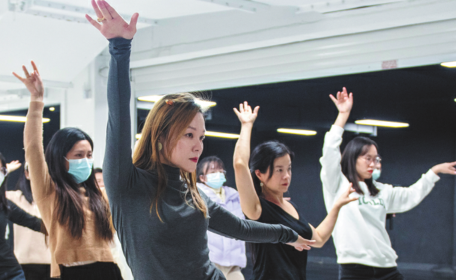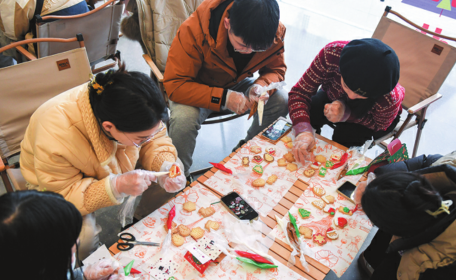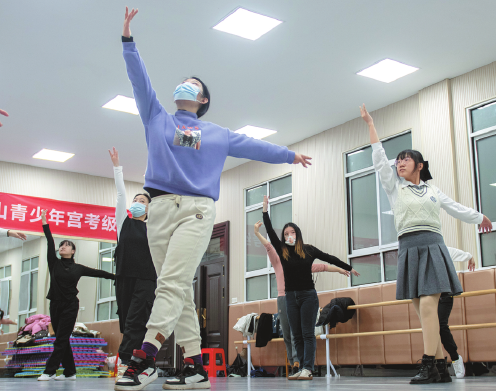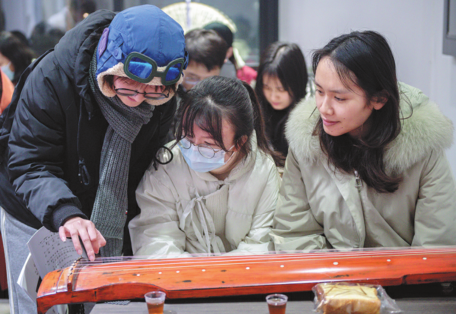Lessons after dark light up the night
More urbanites are taking interest-based evening classes for education, entertainment and socialization.

In a room bathed in soft music, Yuan Li took a deep breath to clear her mind and then started drawing interlocking circular patterns. She was practicing the spiritual and meditative activity known as mandala art.
Yuan is a schoolteacher during the day, but in the evenings she becomes a student at a night school in Wuhan, capital of Central China's Hubei province, where she is trying new hobbies with her 5-year-old son, including mandala art and jazz dancing.
"I used to spend evenings watching my son play in the park or take (academic) classes with a tutor. Now, we can experience new things together at night school," says the 34-year-old single mother.
Yuan represents a growing number of Chinese urbanites who go to night schools that offer courses ranging from dancing and sports to wine tasting.
These classes cost little or nothing thanks to the purpose of public institutions and have become fashionable among budget-conscious youth seeking new skills, hobbies and friends.
Many Chinese associate night schools with the evening classes that universities began to offer in the 1980s, mostly to teach technical knowledge or grant college diplomas for middle school graduates. Such practical institutions, however, were gradually phased out by the popularization of higher education.
The latest fad came to the fore in Shanghai last autumn, when more than 650,000 people reportedly competed for 10,000 spots at the city's night schools, a level of interest that caused the enrollment platform to crash on one occasion.
Shanghai's Citizen Night School for Arts' data showed that popular courses, such as classes in the Shanghai dialect and handmade leatherware, sold out within 10 seconds, while more than 300 courses were fully booked within an hour.
Subsequently, night schools rapidly sprang up in other cities. On the basis of surveys and questionnaires, the Communist Youth League of China's Wuhan Committee has launched 15 night schools since last November — all tuition-free.
Many night schools seem to be tapping into the promising intersection of education, entertainment and social life.
Wang Hehe, a 27-year-old taking a gap year, says her night school in Wuhan is a place to make new friends.
"As I'm neither working nor studying, I spend most of my time alone. Here, I feel connected, and chatting with people with similar hobbies is a lot of fun," she says.
Wang Zhongwu, a sociology professor at Shandong University, says education in China used to focus on children and the elderly, leaving young working adults with few options for continuing learning.
"It is this desire of young people to improve themselves and enrich their cultural lives that has fueled night school fever," he says.
"With more night schools popping up, local governments should build platforms to integrate resources, keep an eye on the state of these schools and provide relevant information."









Today's Top News
- Xi taps China's deep wisdom for global good
- New rules aim for platforms' healthy growth
- Chinese web literature grows overseas
- Postgrad exam trend points to thoughtful approach
- World's highest urban wetland a global model
- How China's initiatives are paving a new path to a better world






























